


We are undertaking initiatives to help reduce the burden on the environment, such as reducing our CO2 emissions and using non-standard flowers for our flower arrangements.
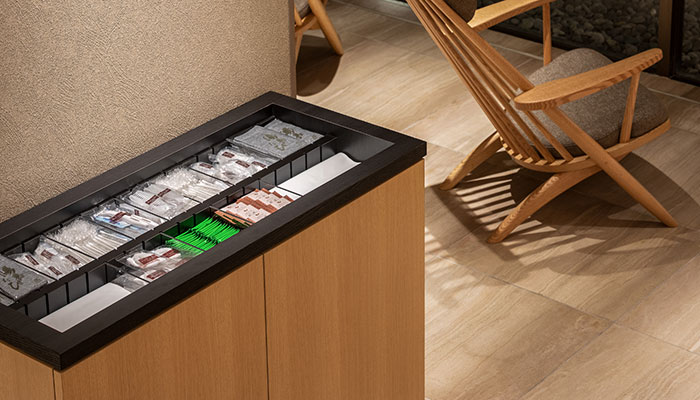
We will reduce plastic usage by providing some amenities in the amenity bar in the lobby, so guests can simply take items that they need to their room. In addition, we will reduce plastic usage together with our customers whom bring their own favorite amenities.
(Amenity Bar conducted across Mitsui Garden Hotels (excluding Mitsui Garden Hotel Premier, Millennium Mitsui Garden Hotel Tokyo) and sequence.)
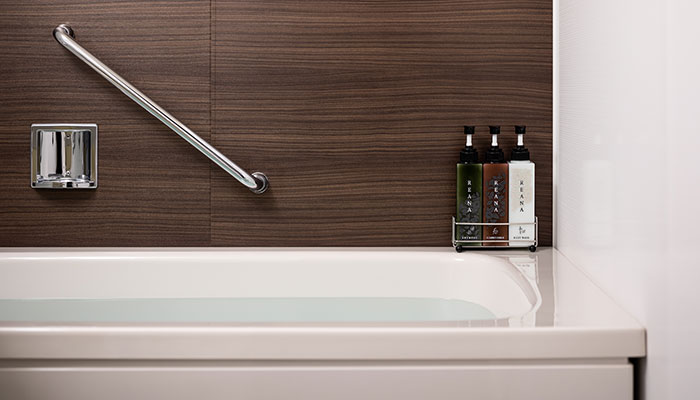
We will work towards reducing plastic usage by gradually replacing disposable mini-bottle amenities used in some rooms with applicators.

In line with environmental protection initiatives and to prevent the spread of COVID-19, for consenting guests, room cleaning for those staying for consecutive nights is limited to collecting rubbish, changing towels and replenishing mineral water and toiletries (excluding some hotels).
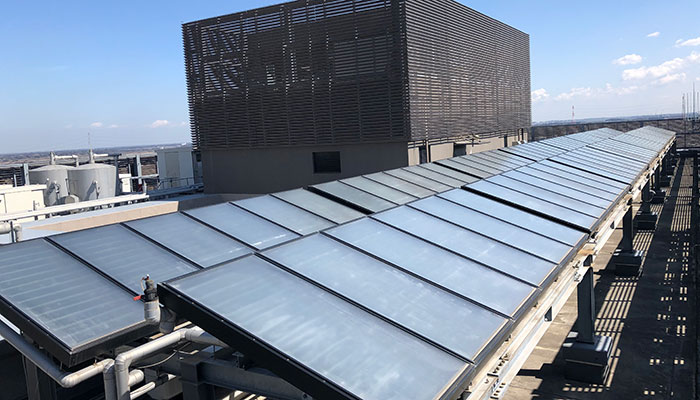
<Solar power>
Hotel electricity is partially generated by solar panels installed on rooftops and other locations.
2023:
Generation of approx. 260,000kWh
CO2 reduction of approx. 113t
(HOTEL THE CELESTINE KYOTO GION, Mitsui Garden Hotel Kashiwa-no-ha,Kyoto Shijo, Kyoto Station, Kyoto Kawaramachi Jokyoji, sequence KYOTO GOJO)
<Solar water heating>
Solar heat collected by solar panels on the roof is used to circulate heat transfer fluids, such as antifreeze, at high temperatures, heating the water in the thermal storage tanks, which is then used as part of the hotel's hot water supply.
2023:
Collected heat value of approx. 210,000MJ
CO2 reduction of approx. 10t
(Mitsui Garden Hotel Kashiwa-no-ha, Kyoto Shinmachi Bettei)
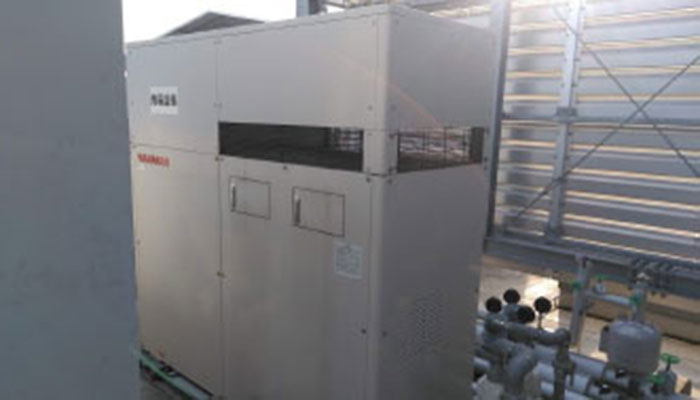
City gas is used to run gas engines and generate electricity, and the waste heat generated in the process is then used to heat water.
2023:
Power generation of approx. 170,000kWh
Collected heat value of approx. 980,000MJ
CO2 reduction of approx. 27t
(Mitsui Garden Hotel Fukuoka Gion, Fukuoka Nakasu)
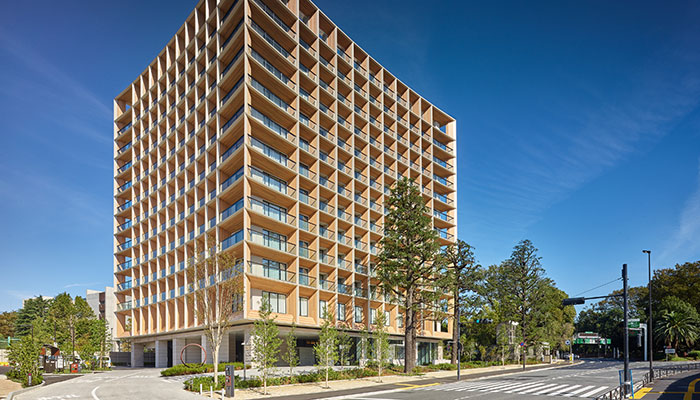
We will contribute to moving towards a decarbonized society by progressively making our electricity greener. Mitsui Garden Hotel Nagoya Premier has already introduced CO2-free electricity derived from renewable energy and all its electricity usage has zero real CO2 emissions.
* 'Greening' refers to using measures such as non-fossil certificates to make electric power effectively renewable.
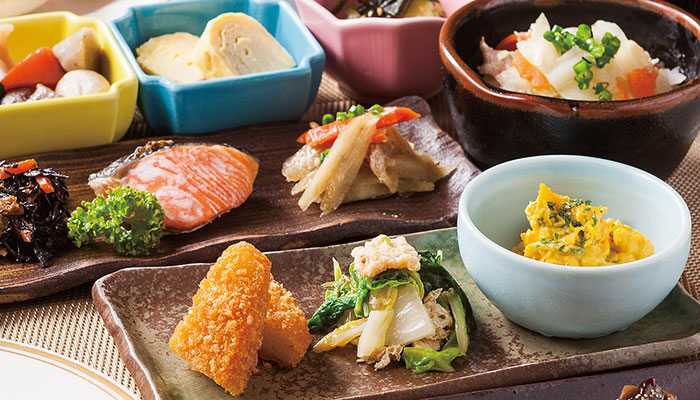
1. Tokyo vegetables introduction
Our company supports the group of "Tokyo Neo-Farmers", a group established by new farmers and supporters of Tokyo vegetables.
We have devised a menu using Tokyo-grown vegetables, which we offer for both breakfast and dinner, as well as offering promotion for the Tokyo-grown vegetables.
(HOTEL THE CELESTINE TOKYO SHIBA)
2. We provide local ingredients, local specialty, and local cuisine for breakfast.
By serving breakfasts featuring local ingredients, local specialties and local cuisine, we help to maintain and preserve the traditional culinary culture of the region. This also helps to save energy used for transport and reduce CO2 emissions by shortening the distribution process of food products.
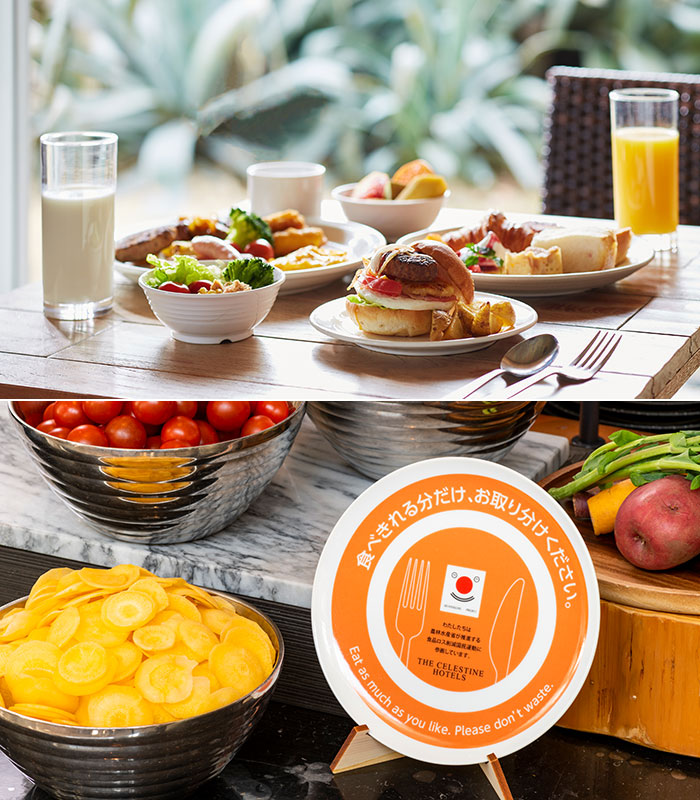
We are working towards the reduction of food loss by measuring the level of food waste and striving to provide the appropriate amount of food.
We proudly participate in the Ministry of Agriculture, Forestry and Fisheries' food loss reduction national movement (NO-FOOD LOSS PROJECT) and ask customers for their cooperation in displaying a “POP” of ceramic plates in all of our buffet restaurants.
We have introduced the food-sharing service "TABETE," a service in which leftover food from the buffet is used to work towards reducing food loss at our breakfast buffet.
(HOTEL THE CELESTINE TOKYO SHIBA, Mitsui Gardenhotel Toyosu PREMIER, Otemachi, Gotanda, Sendai, PRANA Tokyo Bay, Kanazawa, Nagoya PREMIER, Okayama, Hiroshima, Kumamoto)
※ TABETE is a food loss app that aims to combine "business" and "social contribution" while ensuring sales economically, a relatively new "mechanism" to the food sharing service.
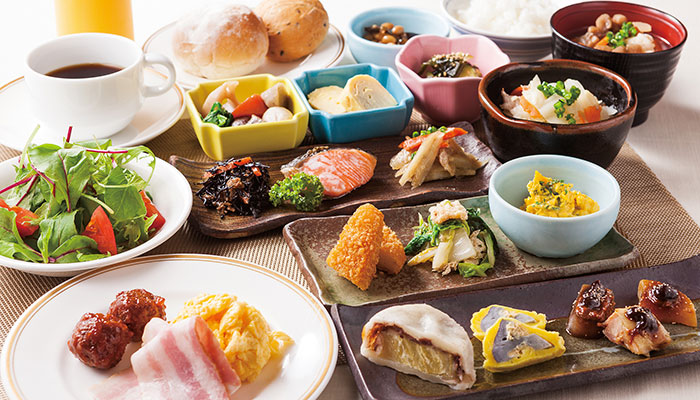
We have asked Farm Service LLC to make use of the leftovers from breakfast. We sort the leftovers by type in an effort to reduce CO2 emissions, for example those which require heat treatment, those which require crushing and those which can be used as-is. We also make use of any leftovers which can be fed to pigs.
October 2023 - March 2024: CO2 reduction amount of 5,178kg.
(Mitsui Garden Hotel Kumamoto)
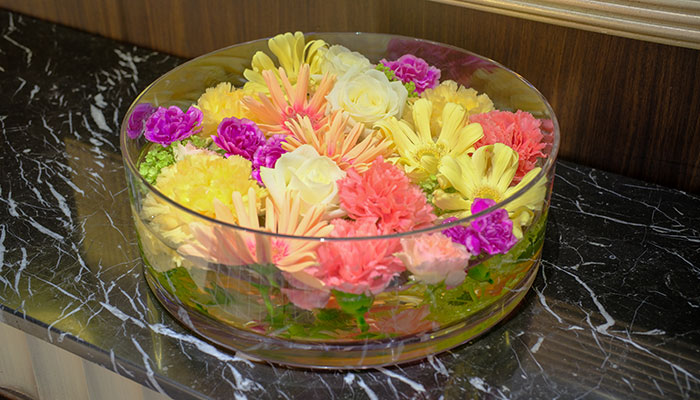
The Flower Yell Project breathes new life into non-standard and discarded flowers. By actively using flowers that would otherwise be discarded while maintaining their value, we are helping to improve the environment by reducing the amount of flowers wasted, while also helping to maintain the continuation of healthy profits for flower growers.
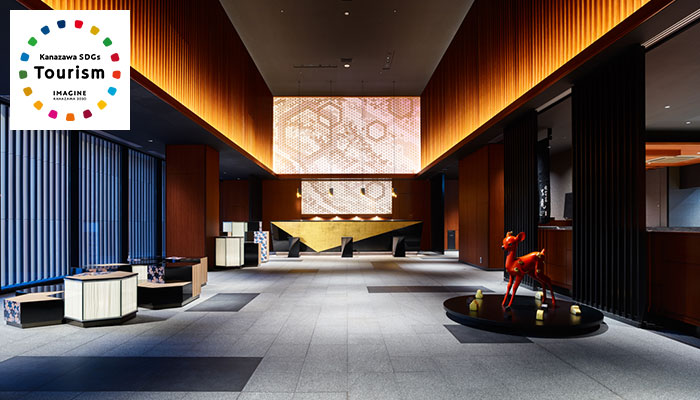
In order to promote sustainable tourism within Kanazawa City, Mitsui Garden Hotel Kanazawa has been certified as a promoting business under the Kanazawa SDGs Tourism Recommendation System, which certifies businesses that are working to achieve the Kanazawa SDGs.